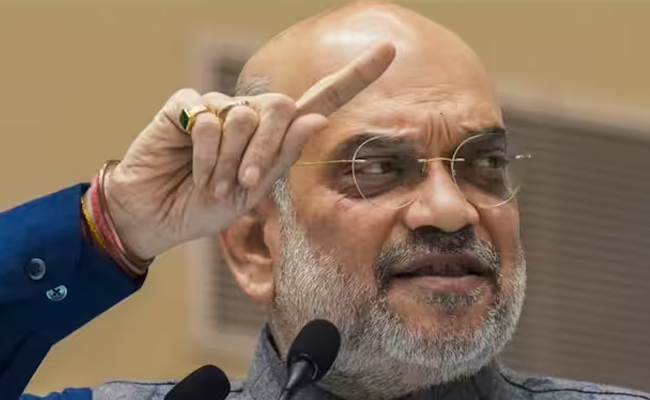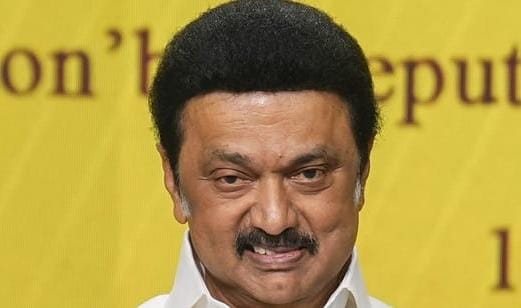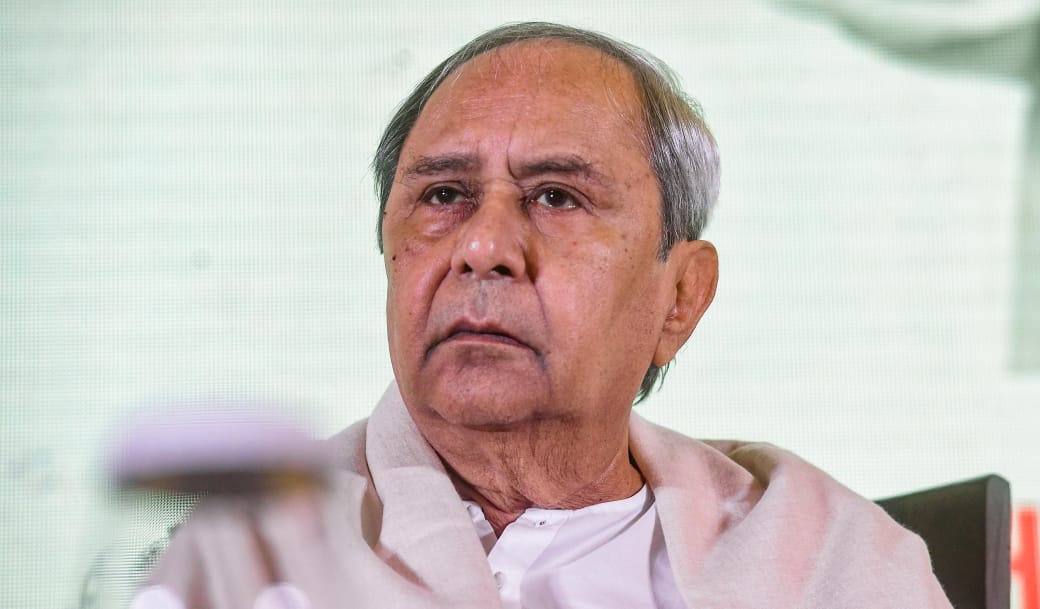New Delhi (PTI): The BJP will get 370 seats and the NDA more than 400 in the upcoming Lok Sabha polls and form the government for a third consecutive term under the leadership of Prime Minister Narendra Modi, Union Home Minister Amit Shah said here on Saturday.
Shah asserted that there is no suspense over the outcome of the Lok Sabha polls and even the Congress and other opposition parties have realised that they will again have to sit in the opposition benches.
"We have abrogated Article 370 (of the Constitution, which gave a special status to the erstwhile state of Jammu and Kashmir). So we believe that the people of the country will bless the BJP with 370 seats and the NDA with over 400 seats," Shah said at the ET NOW Global Business Summit 2024.
Asked about the possibility of the Rashtriya Lok Dal (RLD), headed by Jayant Choudhary, Shiromani Akali Dal (SAD) and some other regional parties joining the National Democratic Alliance (NDA), the home minister said the Bharatiya Janata Party (BJP) "believes in family planning but not in politics", giving an indication that more parties may join the ruling coalition.
When pressed further on the SAD, he said, "Talks are going on but nothing has been finalised."
Shah said the 2024 polls will not be an election between the NDA and the INDIA opposition bloc, but between development and those who give mere slogans.
Asked about the Bharat Jodo Yatra of Congress leader Rahul Gandhi, he said the the Nehru-Gandhi scion has no right to go ahead with such a march as his party was responsible for the country's partition in 1947.
On the timing of a white paper tabled by the government in Parliament, Shah said it was necessary as the country has full right to know what mess the Congress-led United Progressive alliance (UPA) left behind when it lost power in 2014.
"At that time (2014), the economy was in a bad shape. There were scams everywhere. Foreign investment was not coming. Had we taken out a white paper at that time, it would have given a wrong message to the world.
"But after 10 years, our government has revived the economy, brought foreign investment and there is no corruption at all. So it is the right time to publish the white paper," he said.
On the Ram temple in Ayodhya, the home minister said the people of the country believed for 500-550 years that the temple should be built at the place where Lord Ram was born.
"However, due to the politics of appeasement and citing law and order, the construction of the Ram temple was not allowed," he said.
On the Citizenship (Amendment) Act (CAA), Shah said the law, enacted in 2019, will be implemented before the Lok Sabha polls after issuing the rules in this regard.
"Our Muslim brothers are being misled and instigated (against the CAA). The CAA is only meant to give citizenship to those who came to India after facing persecution in Pakistan, Afghanistan and Bangladesh. It is not for snatching anyone's Indian citizenship," he said.
On a Uniform Civil Code, Shah said it is a constitutional agenda, signed by the country's first prime minister, Jawaharlal Nehru, and others.
"But the Congress had ignored it due to appeasement. The enforcement of the UCC in Uttarakhand is a social change. It will be discussed on all forums and face legal scrutiny. A secular country cannot have religion-based civil codes," he said.
Let the Truth be known. If you read VB and like VB, please be a VB Supporter and Help us deliver the Truth to one and all.
New Delhi: In a significant judgment, the Supreme Court on Tuesday ruled that Tamil Nadu Governor RN Ravi’s decision to withhold assent to 10 Bills passed by the State Assembly was “illegal” and “arbitrary”. The court also held that his move to subsequently reserve the Bills for Presidential consideration was not in line with constitutional principles and set aside the Governor’s actions.
The ruling, delivered by a bench comprising Justice JB Pardiwala and Justice R Mahadevan, marks a major victory for the DMK-led Tamil Nadu government. The court said the Governor had failed to act in "good faith" and had disregarded constitutional obligations.
“The action of the Governor to reserve the 10 Bills for the President is illegal and arbitrary. Thus, the action is set aside. All actions taken by the Governor thereto for the 10 Bills are set aside. These Bills shall be deemed to be cleared from the date it was re-presented to the Governor,” the bench stated in its order.
The court underlined that Article 200 of the Constitution does not grant unchecked discretion to the Governor. It laid down clear timelines for the exercise of powers under this provision, thereby reinforcing the principle of accountability in constitutional governance.
Timelines and Judicial Review
The judgment prescribed the following timeframes:
- A Governor must act within one month when withholding assent or reserving a Bill for the President’s consideration, with the aid and advice of the Council of Ministers.
- When reserving a Bill without the Council's advice, the Governor has a maximum of three months.
- If a Bill is re-passed by the state legislature after reconsideration, the Governor must grant assent within one month.
The court clarified that any delay or deviation from these guidelines could invite judicial review, thereby making the Governor’s actions subject to legal scrutiny.
“This court is in no way undermining the powers of the Governor. All actions of the Governor must align with the principle of parliamentary democracy,” the bench noted.
Tense relations between Raj Bhavan and State Government
Governor RN Ravi, a former IPS officer and ex-CBI official, assumed office in Tamil Nadu in 2021. His tenure has been marred by frequent clashes with the MK Stalin-led government. The ruling DMK has repeatedly accused him of behaving like a BJP spokesperson and obstructing the state government’s legislative and administrative functioning.
These confrontations have been evident in the Assembly as well. In 2023, the Governor refused to deliver the customary address, criticising the draft as containing “misleading claims far from truth”. In 2022, he omitted portions of the speech that mentioned leaders like Dr BR Ambedkar, Periyar, and CN Annadurai, as well as references to the “Dravidian Model” and the law and order situation in the state.
Last year, the Governor also walked out of the Assembly during his address after objecting to the absence of the National Anthem at the beginning of the session. As per tradition, the Tamil Nadu Assembly plays the Tamil Thai Valthu at the start and the National Anthem at the end. Governor Ravi, however, insisted that the National Anthem be played at both times.
The state government has maintained that the Governor’s repeated withholding of assent and refusal to act on Bills passed by the legislature amounts to an attack on democratic values and federalism.
Tuesday’s Supreme Court verdict is expected to have far-reaching implications on Centre-state relations and the constitutional role of Governors across the country.




